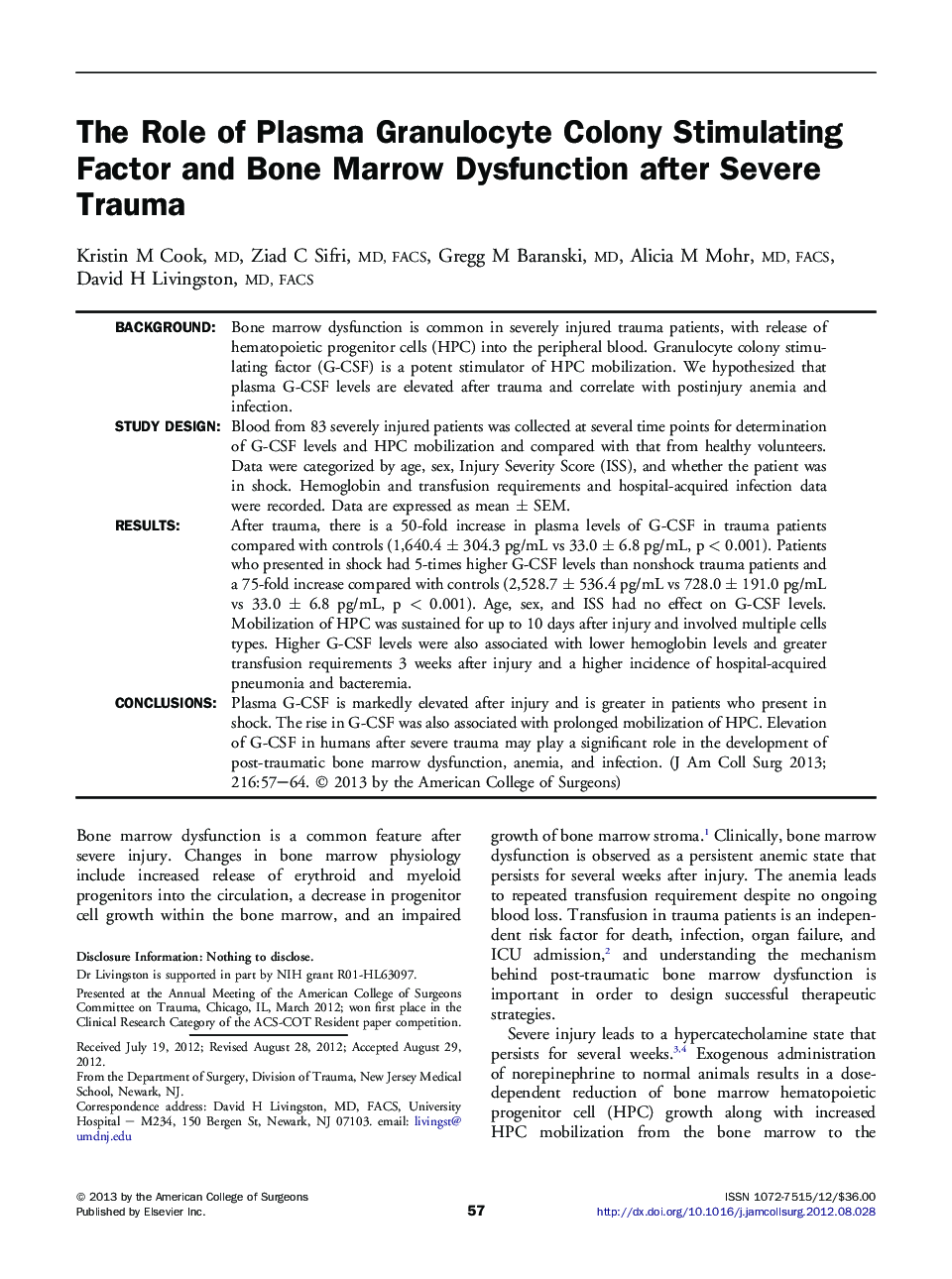| کد مقاله | کد نشریه | سال انتشار | مقاله انگلیسی | نسخه تمام متن |
|---|---|---|---|---|
| 4292716 | 1612251 | 2013 | 8 صفحه PDF | دانلود رایگان |

BackgroundBone marrow dysfunction is common in severely injured trauma patients, with release of hematopoietic progenitor cells (HPC) into the peripheral blood. Granulocyte colony stimulating factor (G-CSF) is a potent stimulator of HPC mobilization. We hypothesized that plasma G-CSF levels are elevated after trauma and correlate with postinjury anemia and infection.Study DesignBlood from 83 severely injured patients was collected at several time points for determination of G-CSF levels and HPC mobilization and compared with that from healthy volunteers. Data were categorized by age, sex, Injury Severity Score (ISS), and whether the patient was in shock. Hemoglobin and transfusion requirements and hospital-acquired infection data were recorded. Data are expressed as mean ± SEM.ResultsAfter trauma, there is a 50-fold increase in plasma levels of G-CSF in trauma patients compared with controls (1,640.4 ± 304.3 pg/mL vs 33.0 ± 6.8 pg/mL, p < 0.001). Patients who presented in shock had 5-times higher G-CSF levels than nonshock trauma patients and a 75-fold increase compared with controls (2,528.7 ± 536.4 pg/mL vs 728.0 ± 191.0 pg/mL vs 33.0 ± 6.8 pg/mL, p < 0.001). Age, sex, and ISS had no effect on G-CSF levels. Mobilization of HPC was sustained for up to 10 days after injury and involved multiple cells types. Higher G-CSF levels were also associated with lower hemoglobin levels and greater transfusion requirements 3 weeks after injury and a higher incidence of hospital-acquired pneumonia and bacteremia.ConclusionsPlasma G-CSF is markedly elevated after injury and is greater in patients who present in shock. The rise in G-CSF was also associated with prolonged mobilization of HPC. Elevation of G-CSF in humans after severe trauma may play a significant role in the development of post-traumatic bone marrow dysfunction, anemia, and infection.
Journal: Journal of the American College of Surgeons - Volume 216, Issue 1, January 2013, Pages 57–64